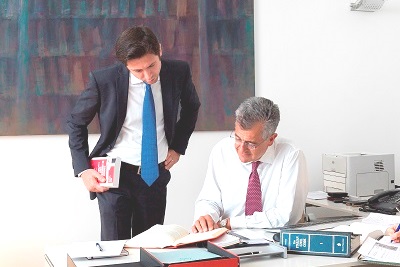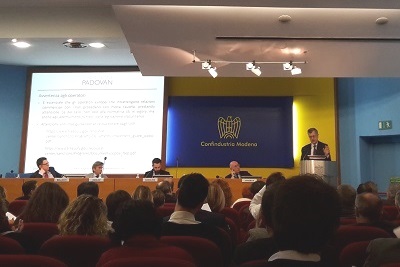

SAVE THE DATE 15-16 FEBRUARY 2024 MILAN 2024: STATES GENERAL OF INTERNATIONAL TRADE COMPLIANCE
After two decades of activity, Studio Legale Padovan has decided to organise an event that has never before been attempted by discussing all international trade compliance issues in one single Continue Reading →

REINFORCING COMMON VALUES IN AN UNCERTAIN WORLD
We are just a couple of days away from Legal Netlink Alliance Global Meeting in #Paris where attorneys from across the world will be meeting for four days. This is Continue Reading →
STUDIO LEGALE PADOVAN STRENGTHENS ITS POSITION AS A LEADING LAW FIRM IN CHAMBERS & PARTNERS EUROPE RANKING 2023
The European rankings of leading law firms were published by Chambers & Partners on 16 March 2023. We are extremely pleased to announce that Studio Legale Padovan has been promoted Continue Reading →

WWL recognizes Marco Padovan as a leading individual in Trade & Customs 2022.
Studio Legale Padovan is pleased to announce that Marco Padovan was selected once again in this year’s edition of Who’s Who Legal: Trade & Customs 2022 as a leading individual Continue Reading →

Client Alert: Covid-19 emergency and golden power. The scope of the italian government’s special powers extended to the dual use and other sectors
In April 2020, in order to mitigate the negative impact of the COVID-19 pandemic, the Italian Government introduced a new provision to protect strategic assets of the Italian economy from Continue Reading →
Comparative study: Rule of Law, National Intelligence Laws, and the protection of secrecy of telecommunications in the European Union, Finland, Sweden and China
Studio Legale Padovan is glad to share a concise comparative overview on national intelligence laws applicable to foreign intelligence gathering, i.e. when the state wishes to collect information on foreign Continue Reading →






